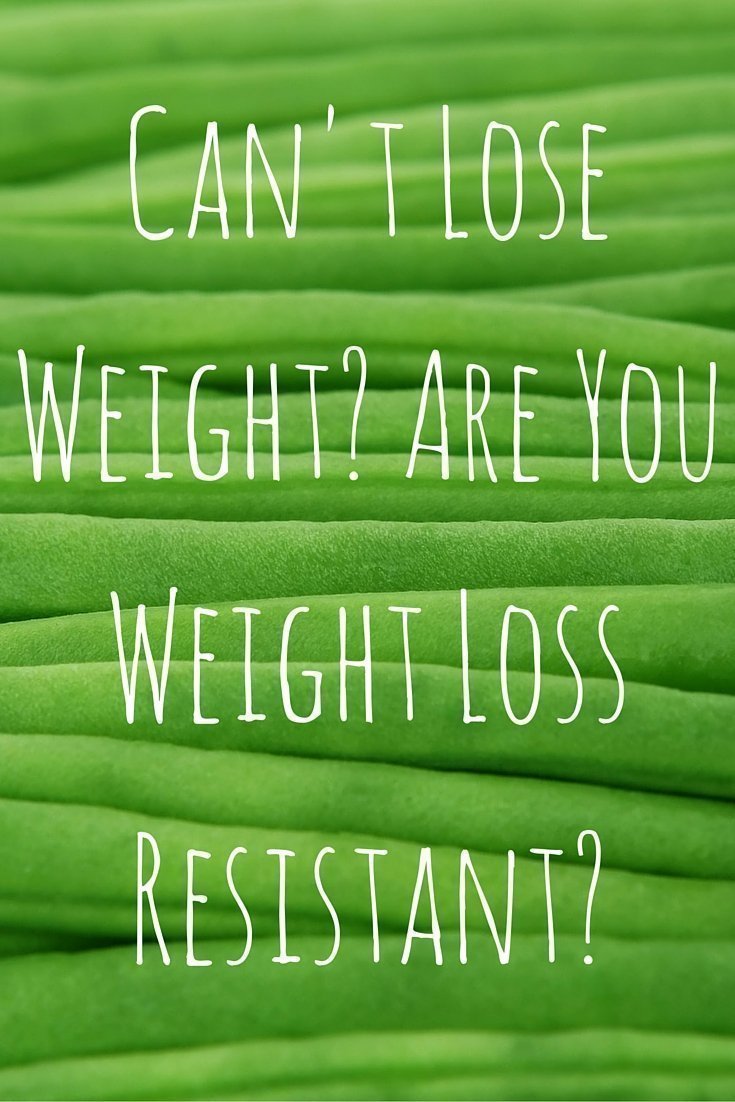Feel Like You Can’t Lose Weight?
We commonly get this question, “I feel like I can’t lose weight, what’s wrong?” We would love to give a simple, easy-to-implement answer but that is never the case. Check out this expert article on reasons why you may feel like you can’t lose weight and how to solve this problem.
The lowdown on weight loss resistance
How many people have tried a “fad” or crash diet and failed at losing weight? Have you been exercising and the scale just stays the same? Are you destined to be fat? Is there any hope?
If this describes you, more likely than not, you are weight loss resistant.


Sixty-five percent of the population is overweight. Heart disease, strokes, diabetes, certain types of cancer, and many others have been associated with excessive weight gain. There is evidence that states all chronic diseases have a nutritional component. Yo-yo dieting has also been associated with excessive weight gain.
There are many reasons why diets fail. From my personal experience, patients want to diet for a short period of time and then revert back to their previous lifestyle. The problem with this outlook is that their poor lifestyle caused the weight gain in the first place! Others want a quick fix or a pill. Many do not want to take the time to make lifestyle changes.
I explain to patients that if it took “x” amount of time to get to this state, it will take a significant amount of time to lose it properly.
Other factors that I have observed in my practice include failure to identify the underlying causes, repeated attempts to diet cause damages the individual’s metabolism, and/or failure to address the behavioral/psychological component.
If you want to be lean, then you have to live like you are lean!
What is Weight Loss Resistance?
Simply put, weight loss resistance is the inability to lose weight.
Is has been said that ninety-five percent of people on a “diet” will gain all the weight lost within five years.
Weight loss resistance encompasses so much more than counting calories. The inability to lose weight can be caused by a number of factors.
They are abnormal amount of stress, an inability to get quality sleep, neurotransmitter imbalances (which can cause food cravings), food sensitivities and intestinal issues (which can cause an inability to properly digest food), insulin and leptin resistance (interferes with carbohydrate metabolism), thyroid disorders (the thyroid is the “director” of metabolism), toxic burden (increased levels of toxins can slow metabolism and increase fat retention) and hormone imbalances.
In addition, co-morbid conditions, such as diabetes, will affect the ability to metabolize fat and gain lean tissue. Many, if not all of the factors, are brought on by our quick fix, fast-paced, work until you drop society. However, there is hope!
How Do You Know if You are Resistant?
In my practice, I take a comprehensive approach to weight loss. The initial visit includes a personal health assessment, anthropometric measurements, diet history, and a three-day diet recall. Once suspected areas of resistance are established, laboratory testing will be ordered to confirm the assessment.
Goals are set based on the unique needs of the individual. The lab testing may include a traditional laboratory workup or a functional work-up. Functional lab testing looks at the individual’s metabolism and how each step is working in relation to the others.
Why test?
Laboratory testing is an objective measurement of weight loss resistance and gets to the bottom of why you feel like you can’t lose weight. Every person has a unique metabolism and has a unique set of stresses.
- Mitochondrial and energy metabolism – mitochondria are the energy producers of the cell (If these are not working properly, the body will store fat to be used as energy)
- Functional vitamin status – vitamin status based on the specific nutrient requirement of the individual
- Carbohydrate and fatty acid metabolism – if these are not functioning optimally fat will be stored
- Food intolerances – either immediate or delayed reactions to specific foods
- Leaky gut – an inability to properly digest foods which can lead to nutrient deficiencies and food sensitivities
- Essential fatty acid balance – omega-3 to omega-6 balance
- Inflammation potential – the more inflammation, the more difficult it is to burn fat
- Oxidative stress – body fat is a direct indicator of oxidative stress
- Detoxification – the more toxic chemicals ingested, the tougher it is for your metabolism to function optimally
- Neurotransmitter and catecholamines balance – cravings and imbalance of stress hormones can create excess storage of fat.
As you can see, without lab testing would be like shooting in the dark!
Wrap-Up: How do you heal these areas?
It all depends on the area(s) of resistance. Some of the treatment strategies include specifically targeted supplements, specific exercise protocols, stress management, sleep strategies, trading toxic chemicals for non-toxic alternatives, behavior modification, and psychological strategies.
Again, if you feel like you can’t lose weight, just remember that each patient’s situation is unique.
One or a combination of strategies can be used depending on the initial assessment and result of testing.
- 8 Ways to Get Healthy Right Now! - June 13, 2020
- How To Choose Protein Powder Best For You - March 22, 2017
- How Do Chemical Additive Food Ingredients Affect Our Health? - December 29, 2016